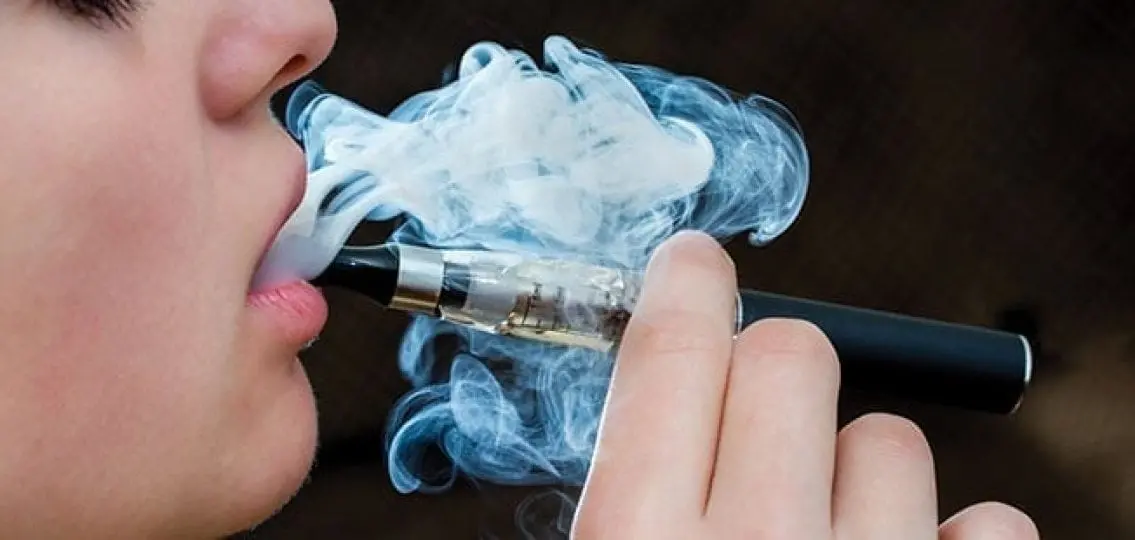As a periodontist, I remind my patients that cigarettes and cigars are risk factors leading to gum disease. Yet, more and more these days, the kind of traditional smoking conversations I’ve had with adult patients over the years has morphed into new questions and concerns about electronic cigarettes.
My patients especially want to understand how vaping may be affecting their teen children or grandchildren.

A lot of social media seems to target teens, convincing them that vaping is safe and cool. Tell that to the Nevada 17-year-old who was rushed to the ER with a hole in his jaw after a vape pen exploded in his mouth, as reported in a recent case study in the New England Journal of Medicine.
Many teens don’t even realize that these electronic devices can be dangerous, and not just because they contain nicotine, which is clearly addicting.
According to the Centers for Disease Control and Prevention, the number of middle and high school students using electronic cigarettes rose dramatically from 2.1 million to 3.6 million in the one-year period between 2017 to 2018. That’s disturbing news for dental professionals like myself whose goal it is to ensure the health of my patients’ teeth and gums.
How Vaping Damages Oral Health
Gum Disease
The nicotine found in most electronic cigarettes is not only an addictive drug, but it is also a vasoconstrictor, meaning it narrows blood vessels. This causes reduced blood flow throughout the body, which of course includes the gums. And, since blood flow is restricted, normal visual signs of gum disease, like bleeding or swelling, may not be as noticeable.
Nicotine also decreases something called “connective tissue turnover,” which is important to support our teeth. In a nutshell, nicotine has an impact on our gums. Furthermore, medical studies show that quitting nicotine habits can be as hard as quitting heroin or cocaine.
Dry Mouth
Nicotine also reduces the secretion of saliva which can cause us to experience dry mouth (xerostomia). Normal saliva production helps wash away food particles and neutralizes acids. With dry mouth, your teeth and gums aren’t protected from bacteria, leading to bad breath, cavities and, when not addressed, eventually gum disease.
Sticky Teeth
What’s the relationship between vaping and teeth? Two other major components of the “e-liquid” in vape pens are vegetable glycerin and sweeteners. In underground vaping forums, users report “sticky teeth” after using vape pens. Studies show that the combination of the glycerin and flavorings produces a 4x increase in the stickiness factor of bacteria. The bacteria adheres to the pits and fissures in our teeth, decreasing enamel hardness. The end result can mean even greater decay.
Long-Term Effects
According to historical research, only one-third of doctors actually believed that cigarettes caused cancer as late as 1960, despite the fact that medical reports existed linking smoking to lung cancer as early as the 1920s.
It’s only been a handful of years since the first studies came out on e-cigarettes. The FDA doesn’t regulate these products and there are hundreds of different vape products from which to choose. But current research suggests vaping could lead to an increased risk of oral cancer.
The American Lung Association agrees that there’s enough negative information on vaping to suggest that people should stop—or never start.
And although vaping may not produce the same level of carcinogens that you get from traditional tobacco products, we are already seeing oral consequences.

If your teens are trying to convince you that vaping is a safe alternative to other forms of smoking, they’re wrong. Notwithstanding exploding devices, severe burns, and other related issues, the likelihood of gum disease (which has been linked to all sorts of other diseases of the body) increases when using these nicotine products.





